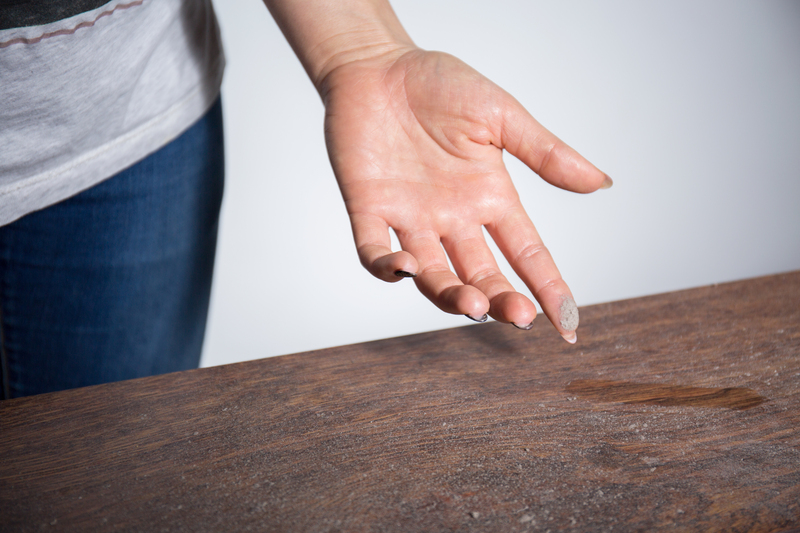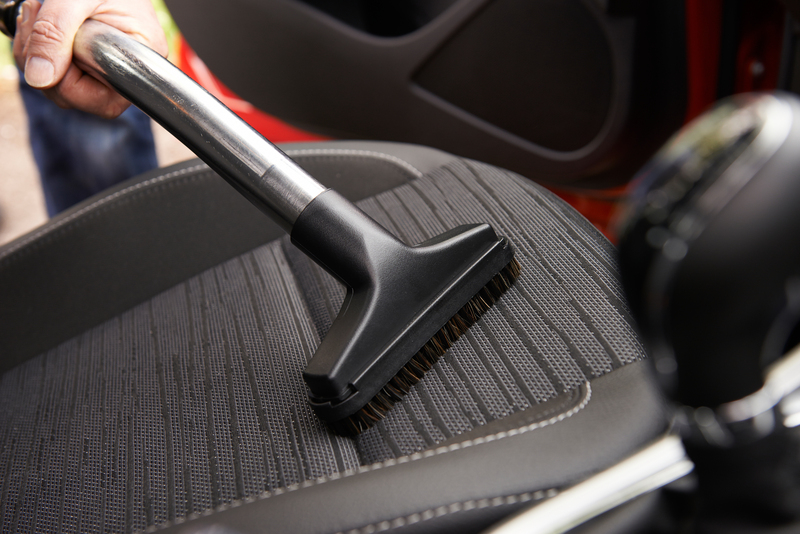A Jeweller's Guide to Flawless Cleaning Techniques
Posted on 17/06/2025
A Jeweller's Guide to Flawless Cleaning Techniques
Are you wondering how professional jewellers keep dazzling diamonds, lustrous pearls, and gleaming gold in perfect condition? Keeping jewellery flawless isn't just about the sparkle--it's about preserving value, ensuring longevity, and maintaining everyday wearability. This comprehensive guide offers jewellers, collectors and enthusiasts the best flawless jewellery cleaning techniques to help you keep every piece in your collection shining like new.

Why Proper Jewellery Cleaning Matters
Whether you are a jeweller, a collector, or just love to wear fine jewellery, understanding flawless cleaning methods is crucial for several reasons:
- Preserves Value: Clean, well-maintained jewellery retains its original value and appeal.
- Prevents Damage: Removal of grime and dirt reduces wear and tear, preventing scratches and deterioration.
- Enhances Appearance: Regular cleaning restores brilliance and enhances the natural beauty of gems and metals.
- Promotes Hygiene: Jewellery sits against your skin and accumulates oils and sweat. Proper cleaning reduces bacterial growth.
Understanding Jewellery Materials and Their Unique Cleaning Needs
Every piece of jewellery is unique--not only in design but also in material composition. Applying the right jewellery cleaning technique for each material is essential.
Precious Metals: Gold, Silver, and Platinum
- Gold: Though resilient, gold is prone to scratches and dents. Avoid abrasive cleaners and harsh brushing.
- Silver: Silver is softer and tarnishes over time. Anti-tarnish cloths and special cleaners are best.
- Platinum: Stronger than gold and silver, but still benefits from gentle cleaning to maintain shine.
Gemstones: Diamonds, Sapphires, Emeralds, and More
- Diamonds: Tough but can still chip. Clean with care using soft brushes and dilute cleaning solutions.
- Sapphires and Rubies: Durable but avoid sudden temperature changes.
- Emeralds and Opals: Porous stones--never soak, only wipe with a damp cloth.
Organic Materials: Pearls, Coral, and Amber
- Pearls: Very sensitive to acids, oils, and chemicals. Only clean with soft, damp cloths.
- Coral and Amber: Similar to pearls; avoid commercial cleaners and ultrasonic machines.
General Flawless Cleaning Techniques Used by Professional Jewellers
Step 1: Inspection Is Key
Before starting, always thoroughly inspect the jewellery under bright light and magnification for loose stones, bent prongs, or cracks. Professional jewellers never skip this crucial step to avoid causing accidental damage during cleaning.
Step 2: Gather the Right Supplies
- Soft, lint-free cloths (microfiber or jewellery polishing cloths)
- Mild, non-abrasive cleaning solutions - typically diluted dish soap or jewellery cleaner
- Soft-bristled toothbrush or a purpose-built jewellery brush
- Warm water (never hot, especially for gemstones)
- Bowl or container (never over the sink to avoid losing small pieces)
- Blower or compressed air (optional for intricate work)
Safe and Effective Home Jewellery Cleaning Methods
1. The Classic Soap and Water Solution
Suitable for: Gold, platinum, diamonds, sapphires, rubies.
- Mix lukewarm water with a few drops of mild dish soap.
- Soak jewellery for no more than 20 minutes.
- Gently scrub with a soft brush, paying attention to crevices.
- Rinse thoroughly in clean, warm water.
- Pat dry with a lint-free cloth and lay flat to air dry.
_Pro Tip: For intricate designs, a can of compressed air can help remove water and debris from tight spaces._
2. Silver Jewellery Cleaning: Banishing Tarnish
Suitable for: Silver without porous gemstones.
- Use a special silver polishing cloth to gently rub each piece.
- For stubborn tarnish, line a bowl with aluminum foil, fill with hot water, add baking soda and a pinch of salt. Soak jewellery briefly, then rinse and dry.
Never use this method with pearls, opals, emeralds, or stones set in glue, as the chemical reaction can be damaging.
3. Professional Ultrasonic Cleaners
_Ultrasonic cleaning_ devices use high-frequency sound waves to loosen dirt and grime--even from areas brushes can't reach. These devices, used by many jewelers, are ideal for durable stones and metals.
Warning: Never use ultrasonic cleaners for emeralds, opals, pearls, or any stones with fractures or inclusions, as the vibrations can cause irreparable damage.
4. Care for Delicate or Organic Jewellery
_Pearls, ivory, amber, and coral_ need the utmost care--never immerse these gems in water. Instead:
- Wipe each piece with a soft, slightly damp cloth after each wear.
- Avoid all cleaning solutions and excessive moisture.
- Lay flat to dry and store in a fabric-lined box away from other jewellery that may scratch their surfaces.
Deep Cleaning Techniques for Jewellers: Professional Tips
Steam Cleaning
Steam cleaners are a staple in many jewellery workshops, especially for gold and diamonds.
Benefits:
- Removes oils, residues, and polishing compounds.
- Safe for hard stones and most metals.
- Not recommended for: Porous or fragile gems.
Polishing with Professional Tools
- Use professional buffing wheels and compounds designed for each type of metal.
- Always use a clean, separate wheel for each metal to avoid cross-contamination and scratches.
- Once polished, jewellery should be washed thoroughly and dried.
Ultrasonic Bath and Inspection
After ultrasonic cleaning, jewelers perform a second inspection to ensure no stones have loosened during the process. This attention to detail is what creates consistently flawless jewellery cleaning results.
Expert Tricks for Sparkling Results Every Time
- Use Soft Materials: Always choose the gentlest cleaning materials--microfiber, soft baby brushes, and specialized cloths.
- Avoid Harsh Chemicals: Household bleach, ammonia, and abrasive powder cleaners can permanently damage both gemstones and metals.
- Check Settings Regularly: Cleaning is an opportunity to inspect for loose prongs or settings that could lead to gemstone loss.
- Store Clean Jewellery Separately: Prevent scratches and tangling by storing pieces in individual pouches or lined compartments.
- Protect From the Elements: Remove jewellery before swimming, cleaning, or using lotions--chemicals and salt can cause damage or tarnishing.
Common Mistakes to Avoid in Jewellery Cleaning
- Over-cleaning: Excessive or aggressive cleaning wears down precious metals and can loosen stones.
- Using Toothpaste or Baking Soda Directly: These seem gentle but are abrasive and can scratch metals and stones.
- Ignoring Manufacturer Instructions: Always check care tags or documentation for custom or vintage pieces.
- Soaking Glue-set Jewellery: Many vintage or costume pieces use adhesives which will dissolve in water, leading to stone loss.
- Wearing Jewellery in Hot Tubs or Pools: Chlorine and saltwater cause discoloration, dulling, and even erosion of certain alloys.
Specialized Cleaning for Vintage and Antique Jewellery
Antique and vintage jewellery require specialized cleaning methods to safeguard their integrity and value.
- Assess the Materials: Identify the metals, stones, and settings, as old solder and glues can react to modern cleaners.
- Gentle Cleaning Only: Clean with a soft, dry brush or a lightly damp cloth. Avoid ultrasonic and steam cleaning unless you are sure of the materials' durability.
- Consult a Professional: For rare, valuable, or sentimental pieces, a professional jeweller should always assess and clean them.
Eco-Friendly and DIY Jewellery Cleaning Alternatives
- Lemon and Baking Soda Paste: For gold and silver, a very diluted mixture can restore shine. Rinse thoroughly and pat dry.
- White Vinegar Solution: Can lift tarnish from silver--but never use on porous gemstones or pearls.
- Bicarbonate of Soda and Water: Use as a mild paste for hard-wearing metals only. Avoid abrasives on plated or soft surfaces.
Always remember: Before trying any DIY jewellery cleaning technique, test on a small, inconspicuous area or consult a jeweller.
How Often Should You Clean Your Jewellery?
- Everyday Pieces: Clean every 1-2 weeks to prevent build-up of oils and dirt.
- Occasional Wear: Deep clean every 1-2 months or after each use.
- Professional Cleaning: Schedule a thorough professional inspection and cleaning at least once a year.
_Not all jewellery is the same! Adjust your cleaning schedule based on your habits and the piece's exposure to dirt and chemicals._
The Final Polish: Storing and Protecting Clean Jewellery
- Store Clean and Dry: Ensure jewellery is thoroughly dry before storing to avoid trapped moisture causing tarnish or rust.
- Separate by Material: Soft stones and metals can scratch easily, so always use individual pouches or soft-lined jewellery boxes.
- Control Humidity: Store silver with anti-tarnish strips or silica gel packets to minimize tarnishing.
- Avoid Direct Sunlight: Many gemstones, especially coloured ones, can fade with prolonged sun exposure.

Frequently Asked Questions About Flawless Jewellery Cleaning
Should I ever use toothpaste for cleaning jewellery?
No. Contrary to popular belief, toothpaste is abrasive and will scratch metals and soften gemstones. Instead, always opt for a specialist jewellery cleaner or mild soap.
Can all gemstones be cleaned with ultrasonic cleaners?
Absolutely not. Only certain durable stones, like diamonds, sapphires, and rubies can safely go inside ultrasonic devices. Opals, emeralds, pearls, and turquoise should always be cleaned manually with the gentlest methods.
How do jewellers clean diamond rings to make them look brand new?
Jewellers use a combination of ultrasonic cleaning, steam cleaning, and professional polishing for diamond rings. Follow up with close inspection and secure settings for a showroom finish.
Is it worth taking fine jewellery to a professional for cleaning?
Yes! Professional jewellers have the proper tools, solutions, and experience to provide a comprehensive, safe, and flawless cleaning service--especially for complex, valuable, or antique pieces.
Conclusion: Bright Ideas for Flawless Jewellery Care
The art of jewellery cleaning is more nuanced than it first appears. Applying the right technique for each material, regular inspection, and proper storage are crucial for preserving your treasured pieces. Whether you choose home methods or professional services, a consistent cleaning routine ensures your jewellery will sparkle with brilliance and charm for generations. Invest in the best cleaning practices today, and watch your collection shine with the flawless elegance it deserves!
Latest Posts
Turn Your Home into an Odor-Free Sanctuary
Outsmart Your Cleaning Tasks with Simple Hacks
Discover the ultimate methods for cleaning uPVC window frames
Conquer Clutter: Building an Effective Cleaning Routine
Spring Clean Perfection: Discover the Power of Our Deep Clean Guide



